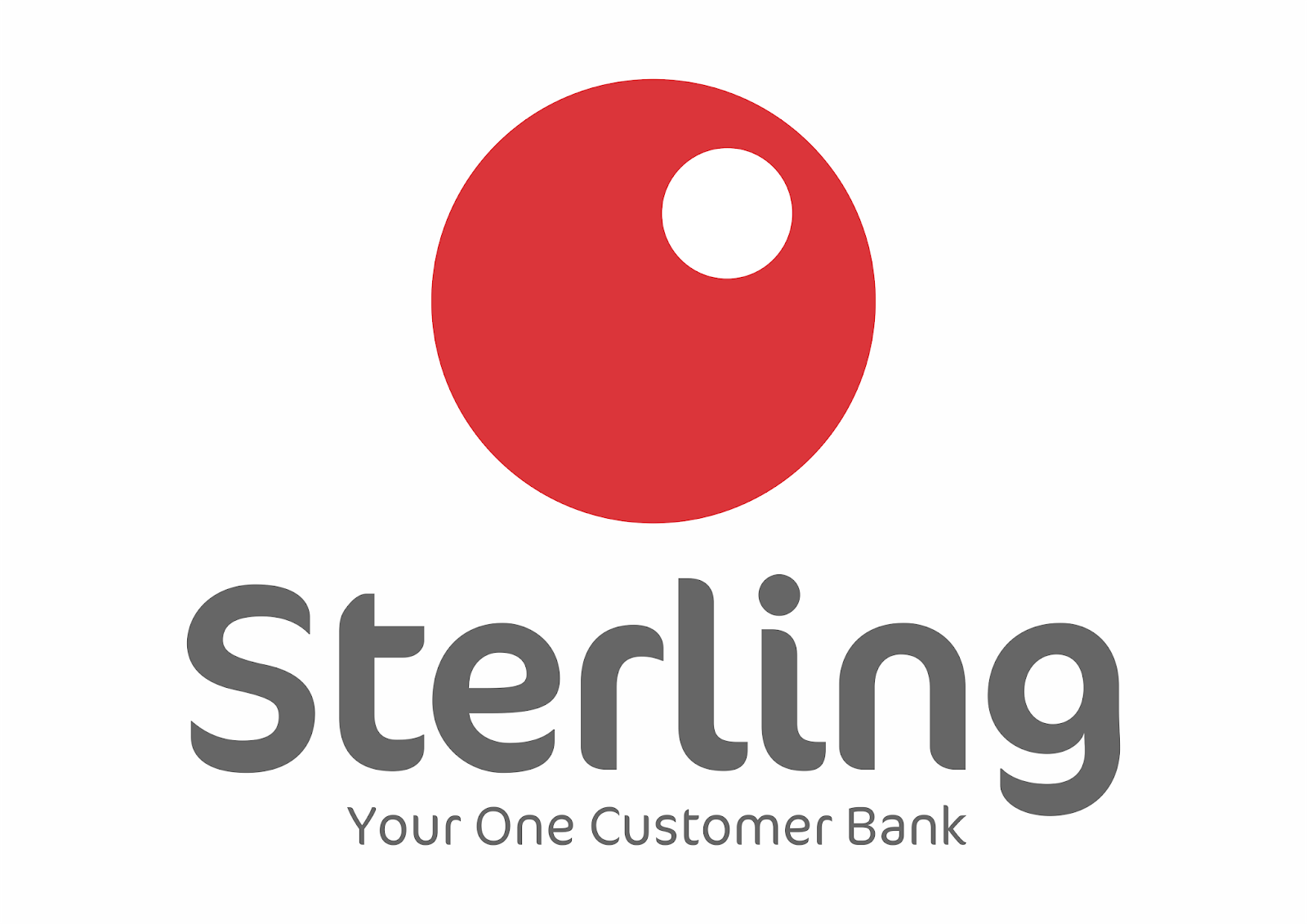Banking
Access Bank Risks Negative Pressures After Merger—Moody’s

By Dipo Olowookere
Renowned rating agency, Moody’s Investors Service, has warned that Access Bank may experience negative pressures on its capital and asset risk metrics as a result of its merger with Diamond Bank Plc.
This disclosure was made in a statement issued recently, where it announced that it was placing the ratings of the Nigerian lender under review for downgrade.
Moody’s said it was looking to lower the B2 long-term local currency deposit rating of Access Bank as well as its B3 long-term foreign currency deposit rating, its b2 Baseline Credit Assessment (BCA) and Adjusted BCA, its B1 long-term Counterparty Risk Rating (CRR) and its B1(cr) long-term Counterparty Risk Assessment (CRA).
However, Moody’s said it was placing Diamond Bank Plc’s Caa1 long-term deposit ratings, its caa3 BCA and Adjusted BCA, its Caa1 CRR and its Caa1(cr) CRA on review for upgrade.
In late 2018, Diamond Bank and Access Bank announced their intentions to merge to become a big and formidable entity.
In its statements, Moody’s said it was reviewing the banks’ ratings following the approval of their announced merger by the Securities and Exchange Commission (SEC) on January 18, 2019, after a preliminary approval of the transaction by the Central Bank of Nigeria (CBN) in December 2018.
“Access Bank’s ratings are placed on review for downgrade to reflect the potential negative pressures on its capital and asset risk metrics as a result of the merger, while Diamond Bank’s review for upgrade reflects the expected convergence of its creditworthiness and ratings with those of Access Bank upon completion of the transaction,” the agency said.
Moody’s explained that its primary driver underpinning the decision to initiate a review for downgrade of Access Bank’s ratings is the expected weakening of the bank’s solvency profile, driven by a lower tangible common equity (TCE) ratio amid higher asset risks.
It noted that Access Bank will acquire a large balance sheet (about N1.6 trillion as of September 2018), mainly consisting of net loans (about N730 billion), which will increase its risk weighted assets, while Diamond Bank’s undercapitalization will likely strain Access Bank’s TCE.
Moody’s expects Access Bank’s post-merger TCE ratio will decline to around 10%, reducing the bank’s loss absorbance buffers. The TCE would also decline below the median for global peers with b2 BCA.
In addition, the rating agency expects Access Bank’s asset risk to increase because of the additional risk assets it will acquire from Diamond Bank.
The rating agency views Diamond Bank’s risk management and underwriting procedures as weaker than those of Access Bank and therefore expects a higher formation of nonperforming loans (NPLs) from Diamond Bank’s loan book that Access Bank will acquire. The rating agency also expects substantial operational risks to be introduced by this sizeable acquisition.
For Diamond Bank, the review for upgrade is driven by the fact that upon completion of the merger, Diamond Bank’s assets, liabilities and undertakings will be assumed by Access Bank, a stronger entity, who will become the obligor of former Diamond Bank’s creditors.
The review on both banks will conclude upon the legal completion of the merger and will take stock of any new relevant information that might be available at that time.
For Access Bank, the rating agency says that the review for downgrade will focus on (1) the impact of a successful completion of the merger on Access Bank’s solvency ratios (asset risk and capital metrics), (2) the extent to which the merger will improve Access Bank’s profitability and funding and liquidity profiles, and (3) any integration challenges that will arise from onboarding Diamond Bank’s assets and liabilities and staff.
The review will assess how Access Bank will implement measures to increase its capital buffers to enable it to absorb new credit losses that will come from Diamond Bank’s loan book. The rating agency will assess any plans by Access Bank to reduce its risk assets and improve its capital upon completion of the merger.
The review will consider the impact of Diamond Bank’s loan book on Access Bank’s asset quality, including the amount of NPLs that Access Bank will inherit from Diamond Bank, and the level of provisions of the NPLs, although management indicated that a large portion of Diamond Bank’s current NPLs will be written off before conclusion of the transaction.
Moody’s said it will also assess the positive impact of Diamond Bank’s largely retail deposit book to Access Bank’s deposit structure and tenor.
As of September 2018, Access Bank would acquire N1.1 trillion customer deposits from Diamond Bank, providing it with deposits that are cheaper than its current cost of funding. The rating agency will consider the impact of possible revenue enhancements and any long-term cost savings, viewed against short-term restructuring costs.
The review will also take into consideration material implementation challenges associated with the acquisition of a large bank such as Diamond Bank.
As of September 2018, Diamond Bank’s total assets constituted 34% of Access Bank’s assets and Moody’s estimates that Diamond Bank’s total assets will contribute about 23% of merged entity total assets.
Access Bank will need to successfully integrate its newly acquired staff and IT and processing platforms while ensuring that the business does not suffer during the integration period. Moody’s recognizes Access Bank’s good track record in mergers and acquisitions.
Moody’s said the review for upgrade on Diamond Bank’s deposit ratings reflects the prospects that the rated deposits and liabilities of Diamond Bank will benefit from Access Bank’s stronger risk profile, and the rating agency will align Diamond Bank’s long-term deposit ratings with those of Access Bank. These are currently B2 on review for downgrade for local currency, and B3 on review for downgrade for foreign currency.
The rating agency will assess the extent to which Diamond Bank’s current solvency weaknesses that are a result of its high NPLs, low provisions and low capital will be addressed by the merger.
The rating agency will also consider the implication of the merger to Diamond Bank’s foreign currency liquidity, in light of the significant refinancing needs in the first half of 2019.
Moody’s said it will withdraw Diamond Bank’s ratings upon completion of the merger because Diamond Bank will cease to exist as a separate legal entity.
Banking
Sterling Bank, AltBank Meet Full Recapitalisation After N153bn Injection

By Modupe Gbadeyanka
The banking subsidiaries of Sterling Financial Holdings Company Plc, Sterling Bank and The Alternative Bank (AltBank), have met the full recapitalisation requirements of the Central Bank of Nigeria (CBN).
The chief executive of Sterling Holdings, Mr Yemi Odubiyi, said the recapitalisation strengthens the group’s ability to support economic activity while maintaining financial resilience.
“This exercise goes beyond regulatory compliance. It positions us to expand credit responsibly, accelerate innovation, and provide sustained support to businesses and households, while maintaining the discipline required in a challenging operating environment,” he said.
Mr Odubiyi noted that fully capitalising both Sterling Bank and The Alternative Bank reinforces the organisation’s dual-bank structure and its ability to serve conventional and non-interest segments.
“Our structure enables efficient deployment of capital across complementary markets and positions us to respond with agility to evolving customer needs,” he said, adding that strong investor participation across the capital programmes reflects confidence in the group’s governance and long-term strategy.
He further pointed out that the strengthened balance sheet provides a platform for the company’s next phase of growth.
“We are entering this phase from a position of significant financial strength, with the capacity to scale non-banking businesses, deepen digital capabilities, and pursue disciplined expansion opportunities while delivering sustainable value for shareholders,” Mr Odubiyi said.
Sterling Holdings achieved this feat after raising fresh capital between December 2024 and October 2025, positioning itself well ahead of the 2026 industry deadline.
In December 2024, it completed a N75 billion private placement, raising N73.86 billion in net proceeds. Of this amount, N68.8 billion was allocated to Sterling Bank and N5 billion to The Alternative Bank, strengthening the capital base of both institutions.
This was followed by a N28.79 billion rights issue, which was oversubscribed by N10.29 billion. Regulatory approvals in May 2025 enabled the allotment of N26.639 billion under the rights issue, with the oversubscription restructured into a private placement, enabling AltBank to meet the capital requirement for non-interest banks with national licences.
Sterling HoldCo further strengthened its capital position through an N88 billion public offer in October 2025, which recorded an oversubscription. The CBN has cleared the full amount of N96.69 billion for recognition as additional capital, while the Securities and Exchange Commission (SEC) approved the allotment of 13,812,239,000 shares.
In total, the group injected N153 billion into Sterling Bank and The Alternative Bank, bringing both institutions into full compliance with the revised capital requirements.
Banking
SERAP Sues CBN Over Alleged Missing N3trn

By Adedapo Adesanya
The Socio-Economic Rights and Accountability Project (SERAP) has filed a lawsuit against the Central Bank of Nigeria (CBN) for failing to account for N3 trillion in public funds, alleged to be missing or diverted.
The lawsuit followed the grave allegations contained in the latest annual report by the Auditor-General of the Federation, published on September 9, 2025. It includes over N629 billion paid to ‘unknown beneficiaries’ as part of the Anchor Borrowers’ Programme.
In the suit number FHC/ABJ/CS/250/2026 filed last week at the Federal High Court in Abuja, SERAP is seeking: “an order of mandamus to direct and compel the CBN to account for and explain the whereabouts of the missing or diverted N3 trillion of public funds, including detailed reports of how exactly the funds were spent.”
In the suit, SERAP argued that, “These grim allegations by the Auditor-General suggest grave violations of the public trust, the provisions of the Nigerian Constitution 1999 [as amended], the CBN Act, and anticorruption standards.”
SERAP is arguing that, “These grave violations also reflect a failure of CBN accountability more generally and are directly linked to the institution’s persistent failure to comply with its Act and to uphold the principles of transparency and accountability.”
According to SERAP, “These violations have seriously undermined the ability of the CBN to effectively discharge its statutory functions and the public trust and confidence in the bank. The CBN ought to be committed to transparency and accountability in its operations.”
SERAP is also arguing that, “Nigerians have the right to know the whereabouts of the missing or diverted public funds. Granting the reliefs sought would advance the right of Nigerians to restitution, compensation and guarantee of non-repetition.”
The suit filed on behalf of SERAP by its lawyers: Ms Oluwakemi Agunbiade and Ms Valentina Adegoke, read in part: “According to the Auditor-General, the CBN in 2022 failed to remit over N1 trillion [N1,445,593,400,000.00] of ‘the Federal Government’s portion of operating surplus’ into the Consolidated Revenue Fund (CRF) account.”
“The Auditor-General fears that the money may have been ‘diverted.’ He wants the money recovered and remitted to the treasury.”
“The CBN also failed to recover over N629 billion [N629,040,000,000.00] paid to ‘unknown beneficiaries’ as part of the Anchor Borrowers’ Programme, a programme ‘meant to support farmers to ensure sustainable food production in the country,’” it said.
SERAP noted that the Auditor-General raised serious concerns over financial management at the apex bank, citing unaccounted intervention funds and unrecovered loans running into hundreds of billions of naira.
The report noted that the number of beneficiaries who collected certain disbursed funds remains unknown and that efforts to recover the money have been inadequate. Over N784.4 billion in unpaid and overdue loans issued between 2018 and May 2022 remain outstanding, with fears that diversion of funds may have worsened food security challenges. The Auditor-General has called for full recovery and remittance of the funds to the treasury.
Banking
We Now Pay Depositors of Failed Bank Within Days—NDIC

By Adedapo Adesanya
The Nigeria Deposit Insurance Corporation (NDIC) says depositors of failed banks in Nigeria can now access their insured funds within days.
The corporation said the development is a part of ongoing reforms aimed at strengthening confidence in the country’s financial system.
The chief executive of NDIC, Mr Thompson Sunday, disclosed this on Thursday at the NDIC Special Day of the 47th Kaduna International Trade Fair, noting that recent interventions had significantly improved the speed and efficiency of depositor compensation.
Represented by Mrs Regina Dimlong, the Assistant Director of Communications and Public Affairs, Mr Sunday said the corporation had successfully deployed the Bank Verification Number (BVN) system to facilitate prompt payments to customers of recently failed banks, including Heritage Bank Limited, Union Homes Plc and Aso Savings and Loans Plc.
“Depositors were paid within days of closure without the need to fill physical forms or visit NDIC offices.
“This is a part of our reform efforts to make depositor protection faster, simpler and more transparent,” he said.
According to him, the reforms were designed to restore public confidence in the banking system and prevent panic withdrawals, especially during periods of financial stress.
Mr Sunday explained that NDIC’s mandate spans deposit insurance, bank supervision, distress resolution and liquidation of failed banks, adding that the Corporation works closely with the Central Bank of Nigeria (CBN) to ensure early detection of risks in insured institutions.
He disclosed that in 2024, NDIC reviewed its deposit insurance framework, increasing coverage for depositors of Deposit Money Banks, Mobile Money Operators and Non-Interest Banks to N5 million, while customers of Microfinance Banks, Primary Mortgage Banks and Payment Service Banks are now covered up to N2 million.
He noted that the revised thresholds now guarantee full protection for about 99 per cent of depositors nationwide, particularly small savers and low-income earners.
The NDIC boss urged Nigerians to ensure their BVNs are properly linked to their bank accounts, stressing that this had become the primary channel for accessing insured deposits in the event of bank failure.
-

 Feature/OPED6 years ago
Feature/OPED6 years agoDavos was Different this year
-
Travel/Tourism10 years ago
Lagos Seals Western Lodge Hotel In Ikorodu
-

 Showbiz3 years ago
Showbiz3 years agoEstranged Lover Releases Videos of Empress Njamah Bathing
-

 Banking8 years ago
Banking8 years agoSort Codes of GTBank Branches in Nigeria
-

 Economy3 years ago
Economy3 years agoSubsidy Removal: CNG at N130 Per Litre Cheaper Than Petrol—IPMAN
-

 Banking3 years ago
Banking3 years agoSort Codes of UBA Branches in Nigeria
-

 Banking3 years ago
Banking3 years agoFirst Bank Announces Planned Downtime
-

 Sports3 years ago
Sports3 years agoHighest Paid Nigerian Footballer – How Much Do Nigerian Footballers Earn












